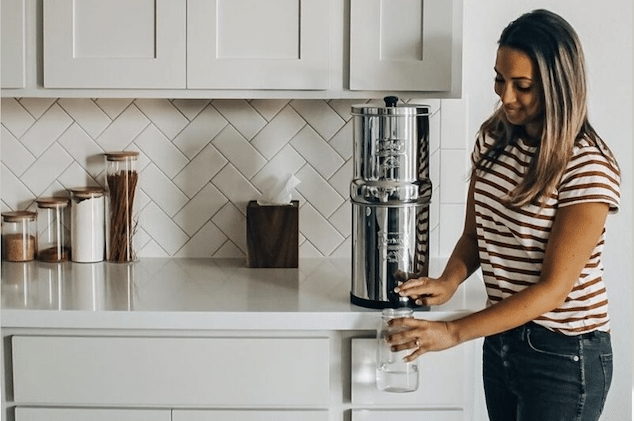
Should you get a water filtration system for your family? What to know about drinking healthy water and whether you are getting it and how to get it.
If you are making plans to get away, either out of necessity or for fun, safe drinking water is a must. A Weekend Getaway, Bug Out Bunker, or Off-Grid Home needs a safe water supply to make it work. Anyone who has tried to get away for any length of time knows that water is a challenge. You can only haul so much. When the bottles are all empty, what can you do? With a high-quality water filtration system, berkey water, the answer is, keep going.
Clean Water Is No Trouble
Did you know that tens of millions of people around the world survive on rainwater? They collect it from rooftops, puddles, lakes, or streams. If they are lucky, they have a way to boil the water they collect to kill any biological contaminants. While boiled rain or groundwater looks clean and safe to drink, don’t be fooled. There are many contaminants in crystal clear water that can make us sick.
Besides viruses and bacteria, solvents, heavy metals, and other pollutants exist in water. They all make their way into rainwater. Once rainwater hits the ground, the number of contaminants doubles, or worse. How can those be removed? Filtration systems can remove over 99% of all the contaminants you can think of and some you can’t.
What Do Filtration Systems Remove and How?
Water filtration systems are ideal for any home. They are capable of transforming any water source into clean, safe drinking water without removing the trace minerals our bodies need. Unlike reverse osmosis systems, they do not waste any water. They will remove biological contaminants, chlorine, chloramine, fluoride, heavy metals, petrochemical contaminants, herbicides, pesticides, etc. The filter does this all with no power and no pumps. Gravity is all that is required to filter as much water as you need.
What You Need To Know About Your Drinking Water.
It is common knowledge that no water supply is completely safe. Municipal water supplies commonly report contamination events. Poor farming and industrial practices have historically contaminated wells. As pure as they are, both snow and rain fall from a contaminated sky. To be safe, it is important to take control of your water supply. Do some research about the groundwater in your area. This will provide a starting place for your water system evaluation.
The USGS, EPA, and even local governments maintain extensive water quality databases around the country. Universities and environmental groups routinely test rainwater quality. These sources are surprisingly honest about contaminants in rainwater, surface water, and groundwater. If you have a specific water source you intend to use, send a sample to a reputable water lab for testing. They are not overly expensive, and the peace of mind will be worth the price.
What Is The Next Step?
If your current water supply is perfect, great. You are good to go. Chances are, you will not be so lucky. Even if your water supply is perfect today, tomorrow may be a different story. Continued pollution will lead to increased contamination of natural water sources. You will need to act before relying on your water source as drinking water.
After you determine if you need a filtration system, you will need to assess your supply and demand. How much water will your family require daily? Round all your estimates up as a buffer. Next, evaluate your supply source. A dirty or cloudy water source will shorten the life of filters. Do an honest assessment of the water going in to determine filter life. After coming up with an estimated usage and filter life, select an appropriate filtration system.






